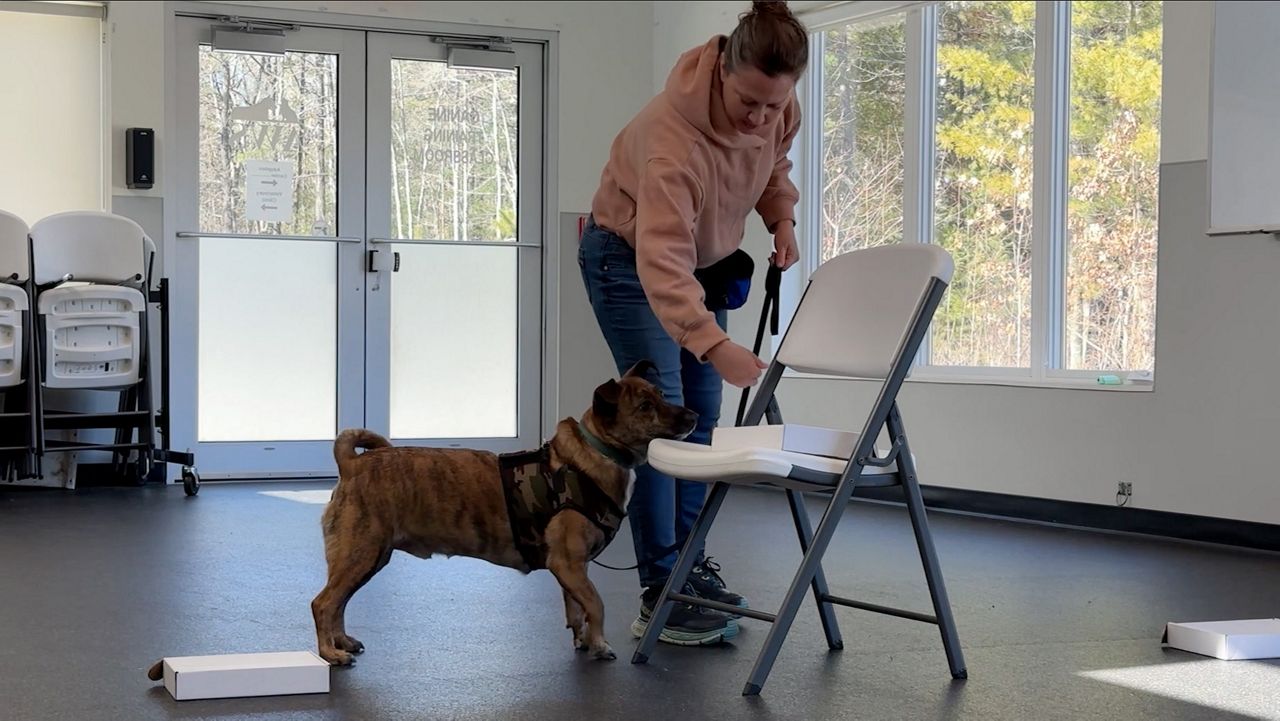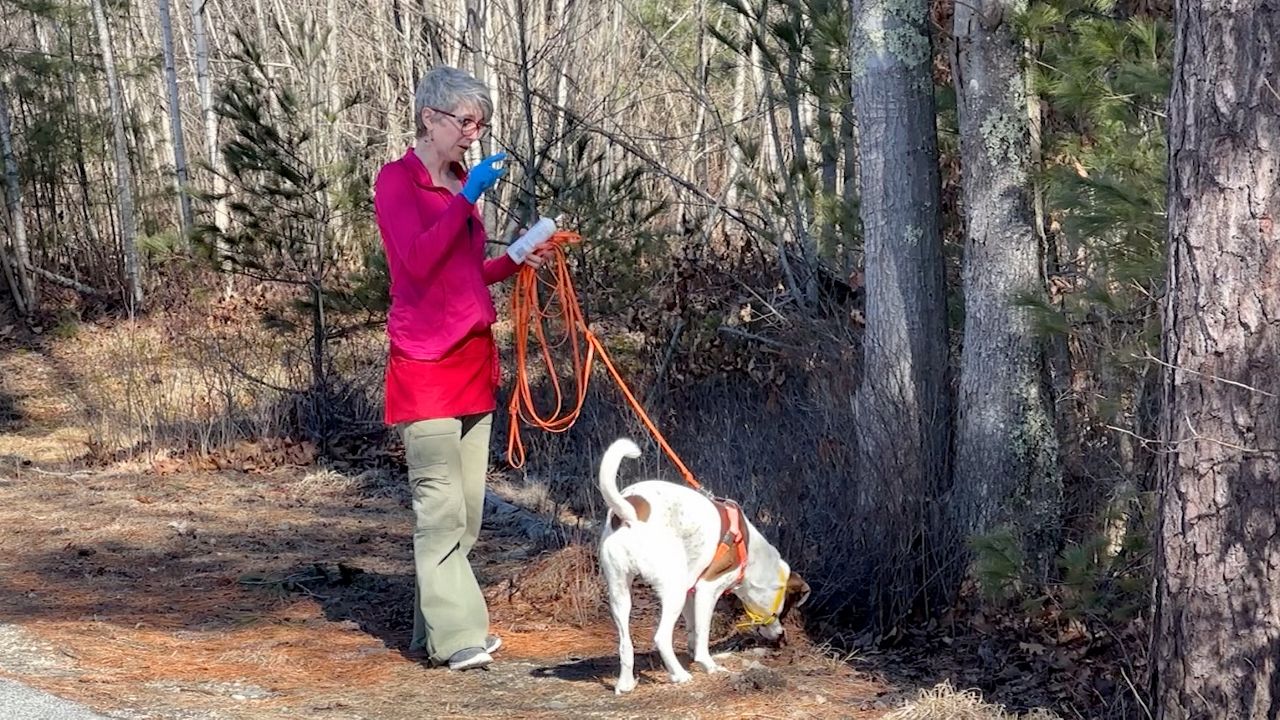For Melissa McCue-McGrath, the training exercise she demonstrated Friday in Kennebunk could be the beginning of a whole new tool to fight invasive species in Maine.
For Captain, 9, her pointer-beagle-pit bull mix, it meant getting to eat some cheese.
McCue-McGrath, 42, a Washington native now living in Kennebunk, is a professional dog trainer at the Animal Welfare Society in Kennebunk. She and other pet owners there are participating this spring in a nationwide pilot program run by Texas Tech and Virginia Tech universities. The goal: To see if household animals can be trained to detect invasive species that can pose a major threat to local environments and economies.
“It’s really a proof-of-concept to see if trainers around the country can train pet dogs, dogs that you would have in your own house,” she said. “That those dogs just sleeping on your couch can go outside and help save the environment.”
McCue-McGrath said she is working locally with five “teams,” each made up of one dog and its handlers. Another 235 teams are also training all over the country as part of the study.

(Sarah Ashe, 44, of South Portland, offers a treat to her mixed-breed dog Hopper, 4, after he found a sample of dead spotted lantern fly eggs hidden inside a box at the Animal Welfare Society in Kennebunk Friday. The training program focuses on training household pets to detect evidence of invasive species. (Spectrum News/Sean Murphy)
Depending on the results nationwide, McCue-McGrath said the work she is doing now could pave the way for more formal training programs in the future in conjunction with state officials. Dogs like hers, she said, could be called upon to help sniff out where an invasive species is, giving wildlife officials a better chance of stopping them.
Friday’s demonstration and training session focused on the spotted lantern fly. According to the US Department of Agriculture, the fly is native to China, but was first discovered in Pennsylvania in 2014. Since then, the pest has spread to 16 other states.
McCue-McGrath said the flies have not been spotted in Maine yet, but they have been found in Massachusetts, and could be inadvertently carried by vehicles into the Pine Tree State.
Once here, the flies would feed and lay their eggs just about everywhere, leaving a sugary residue behind that attracts black mold.
“That’s what decimates vineyards, crops, maple trees, apple trees, pretty much name a crop in Maine and it’s at significant risk if this little bugger gets in here,” she said.
McCue-McGrath said she did a podcast about two years ago about the spotted lantern fly, and that inspired researchers at the universities to seek her out when they started their work.
The training the local teams are doing now is nearly identical to the training police departments use to train dogs to detect drugs, dead bodies or explosives.
The work is structured like a game – find something the dog likes and use it as a reward for sniffing out something. In this case, the target was a packet the size of a matchbox containing dead samples of the spotted lantern fly eggs.
On Friday, Captain and Hopper, a four-year-old mixed-breed dog owned by Sarah Ashe, 44, of South Portland, ran around inside looking for the packet inside one of several identical boxes. Outside, they’d search along the society’s driveway to find another sample stashed in a tree trunk. When they found it, they got a treat.
“He loves it,” Ashe said of Hopper. “Scent is his favorite (training).”
Ashe said she has been taking Hopper to the society for general-purpose obedience training since he was a puppy. She said she wanted to participate in the study right away.
“It’s pretty interesting,” she said. “We’re definitely excited about being a part of it.”
All the dogs in the training are house pets, with no formal background putting their noses to work for human purposes. Still, McCue-McGrath said the results so far have been remarkable – the dogs can detect the eggs with 80-90% accuracy.
“That’s saying a lot of good things for the science and the hypotheses that the researchers from these universities have come up with,” she said.
The training will officially end in April, when McCue-McGrath will turn over data she has collected to the universities for further study.



